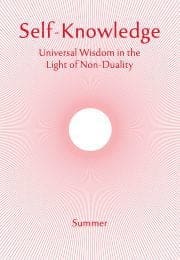Making a Good Impression
No one is known to another so intimately as he is known to himself, and yet no one is so well known, even to himself, that he can be sure as to his conduct on the morrow.
This observation, made by St Augustine in a letter more than 1500 years ago, still rings true. We may be trained to conduct ourselves in a certain way regardless of difficulties and temptations, and our control may make a good impression on others. Yet the nature and integrity of our response is not guaranteed, nor can our state of mind be anticipated; we can only wait and see.
Augustine’s words may also have a special meaning for those who are following a path to self-knowledge. They warn us not to depend on our own resources of character, or to take pride in any imagined personal achievements relating to our path. Rather, we are advised to take refuge in the supreme and all-pervading Power, seeing That as the true source of all that is good, and forwarding all credit to That.
This way of humility is common to all higher teachings. It is expressed in the prayer of Christ in the words: ‘Thy will be done’, and ‘Thine is the kingdom, the power and the glory.’ The founder of the Jesuits, Ignatius Loyola, in his Spiritual Exercises, bids the aspirant to consider:
Who are you who this day begin these holy exercises? Who are you? A soul established in virtue? You need renewing. The most solid virtue is a perfume which evaporates, a mirror which tarnishes, a water which becomes impure in the midst of the world.
This letting go of personal pride is a fundamental teaching of the Bhagavad Gita. It is the step that has eventually to be made beyond pious action:
Abandoning all righteous deeds, seek Me (Truth) as your only refuge. Do not grieve. I will deliver you from all shortcomings.
As regards the unpredictability of our conduct on the morrow, a familiarity with the non-dual teachings about the mind can be helpful. Every mind is unique, and each of us harbours a vast store of memories—impressions laid down by past experiences, particularly those that touched our emotions and aroused desire or aversion. These memories, in their turn, band together and cause us to react in a certain way. Thus a habitual tendency is formed in our mind. Such tendencies usually escape our conscious scrutiny and come to rule much of our inner life.
If this processing of experience takes place without reference to our higher idealism, there are no grounds for regarding it as ‘good’; it is at best neutral, and at worst binding and therefore harmful. But it is possible for us to use the workings of our mind in a higher and more rewarding way. We do this by consciously choosing the impressions we wish to house in our memory, and by keeping our memory fresh with kindred ideas. This, in turn, will give rise to new and desirable tendencies—stronger and superior because they have been shaped consciously, as part of our master plan to advance in wisdom.
To be specific, the master plan of the student of higher knowledge involves building the inner power to affirm truth and negate that which diverts us from truth. It is the power of ‘yes’ and also of ‘no’, springing from the most powerful urge to free ourselves from delusion and make clear the identity of our Self with the infinite reality that is ever the true being of our ‘I’. In this way, we tutor our mind in what is of lasting benefit, and create the best kind of impression, since it aligns our inner life with the great Reality underlying it, allowing us to merge in identity with That.


